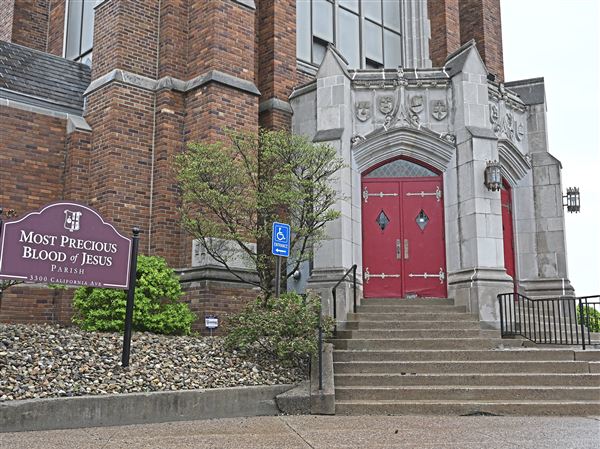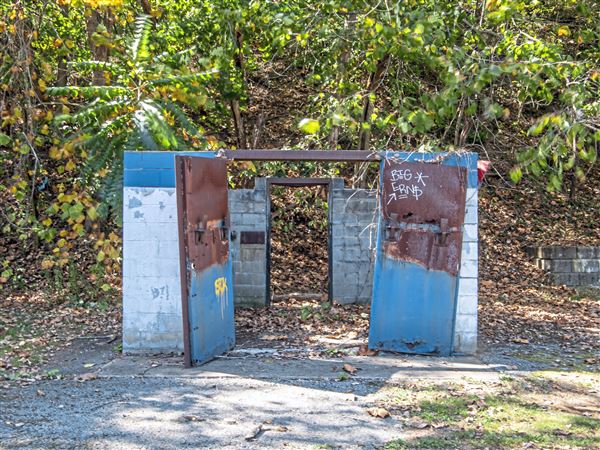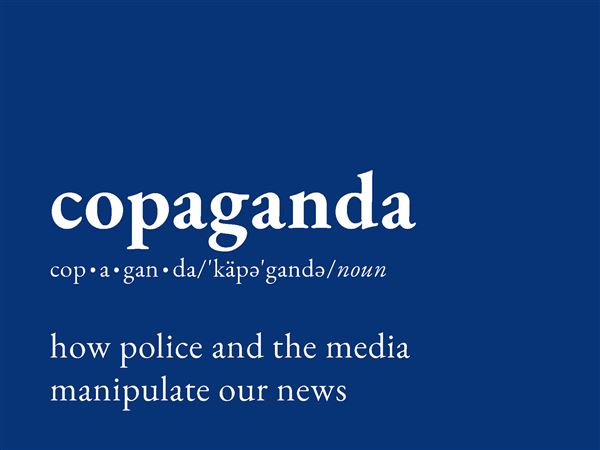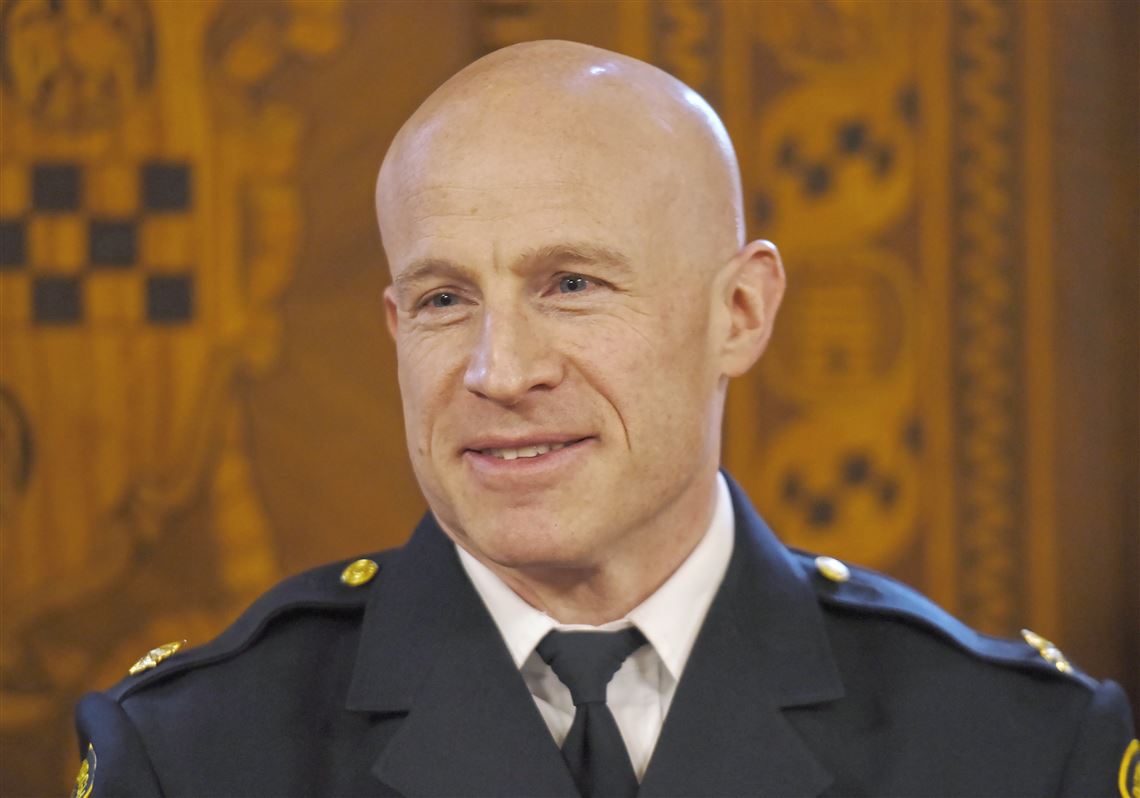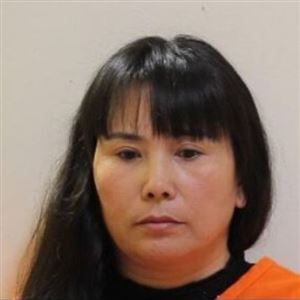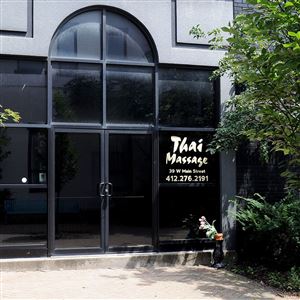Allegheny County police have largely stopped arresting prostitutes, while Pittsburgh’s bureau intends to beef up its vice effort starting next month.
Their opposite approaches reflect diverging opinions in law enforcement and in society regarding the “oldest profession.”
“Society is sending us some mixed messages in terms of prostitution,” said county police Superintendent Coleman McDonough. His force logged just one prostitution arrest in the first 11 months of this year.
He noted that some people perceive the men and women advertising their bodies online or on corners as sex workers, or as victims, and those people contend “that arrests are not in [prostitutes’] best interests.”
Pittsburgh police, by contrast, made 88 prostitution-related arrests through November of this year.
It’s not all about jailing people, said Jason Lando, commander of the Pittsburgh Bureau of Police’s narcotics and vice division. He said he knows “that sometimes the only way to get these people help is to use the teeth of criminal prosecution. … We have the ability to go to court and say, ‘Judge, we don't want to see this person necessarily go to jail, but they need to be in some sort of a rehabilitation program.’”
In just four years, prostitution enforcement in the county has changed dramatically. In 2015, the county police were tops in prostitution arrests, with the Pittsburgh police close behind, followed by the departments policing hotel-rich Moon, Harmar and North Fayette.
This year, through November, Pittsburgh dominated, followed by Robinson and Hampton, with the county police a virtual non-factor.
“Just like every other law enforcement agency, we have finite resources,” explained Superintendent McDonough. The county, in late 2018, decided to focus on the drug trafficking that has been linked to record fatal overdoses, and on homicides.
On Allegheny County Council, there’s some bipartisan support for a less-handcuff-heavy approach to those who sell sex.
“I certainly care about the people that are doing this — and maybe feel that this is their only means of support — and would love to get them help,” said Sam DeMarco, the Republican at-large member of council, adding that social services, rather than policing, may be the best tool.
At-large councilwoman-elect Bethany Hallam, a Democrat, advocates decriminalization of sex work. “That’s the path we can get Allegheny County on,” she said. “Instead of a police officer showing up [to meet a sex worker] with handcuffs and guns, it’s a social worker showing up.”
Superintendent McDonough noted that the county still has a detective assigned to the FBI-led human trafficking task force. But he added that county prostitution arrests have only rarely led to human trafficking arrests. “I would say less than 1% had any potential connection to any human trafficking cases,” he said.
That 1% figure seems close to the mark. From 2015 through November, courts in Allegheny County have seen 914 prostitution-related cases. The federal court based Downtown, which handles the bulk of the sex trafficking cases for the Pittsburgh region, has charged just 10 defendants for such crimes since 2015.
The region’s most recent federal human trafficking case to be made public involved the 2018 arrests of Oscar Carter, then 34, and Shelby Summer Brown, then 27, in Cranberry. Prosecutors said the two tried to sell the services of a 17-year-old Ohio runaway to an undercover detective in a Pittsburgh hotel. The two have pleaded not guilty.
Can law enforcement make arrests like that without the intelligence gleaned from garden-variety prostitution busts?
"I think you have to work the prostitution cases in order to make the human trafficking cases,” said Tim Wolford, the FBI’s supervisory special agent in charge of violent crimes and crimes against children. “It’s important to work the smaller cases in order to catch the bigger fish.”
Recent busts of brothel-like Asian massage parlors — some outside of Allegheny County — suggest that human trafficking remains a problem in the region. And a South Side service center for current and former victims of sex trafficking, set up by Pittsburgh Action Against Rape in 2018, helped 135 clients in the fiscal year that ended June 30.
Hampton saw a need to work the prostitution beat because the cluster of hotels near the Turnpike’s exit to Route 8 were drawing more prostitutes driven by opioid addiction, according to Chief Thomas Vulakovich and a detective who asked not to be named.
The detective patrols websites on which people advertise sexual services, stakes out hotspots, records license plate numbers and takes tips from citizens. He then pretends to be a customer, sets up a rendezvous and makes the bust.
From May through September, Hampton’s effort led to arrests of:
- a Millvale-area woman, 30, who paid her driver, 36, from Franklin Park, two stamp bags of heroin to bring her to the rendezvous point
- a 30-year-old woman from Tarentum who showed up for her appointment with a used syringe
- two North Side women, ages 31 and 32, who showed up with a crack pipe, used stamp bags and a syringe
- a 20-year-old Marshall-Shadeland woman who showed up with crack
- a 47-year-old McKees Rocks woman who arrived with six open stamp bags, syringes, a cooking spoon, a tourniquet and a crack pipe.
Chief Vulakovich said that prostitution enforcement tamps down one avenue by which people feed addictions, and reduces the likelihood that someone fresh from a rendezvous and high on heroin will end up behind the wheel on his township’s roads.
Hampton’s detective added that he has seen at least one woman straighten her life out after a bust.
Rehabilitation is the goal of the county’s Program for Re-Integration, Development and Empowerment of exploited individuals (PRIDE) court, which places people convicted of prostitution in counseling for trauma, psychiatric problems and drug and alcohol addictions.
As recently as 2015, that court got 67 new cases. But last year it got just 19 new cases, followed by 21 this year. PRIDE Director Johnna Zacharias could not be reached for comment.
Pittsburgh Detective Joseph Ryczaj, who has worked vice since 2007, said he is occasionally approached by people he arrested years back, who tell him, “‘If you didn't do what you did, I probably would've been dead.’”
The bureau could have ignored their crimes, he said, and let them continue to sell their bodies. “And they’re going to overdose. They’re going to get raped. They’re going to get robbed. It’s a horrible lifestyle.”
When prostitution is allowed to persist, Cmdr. Lando added, “There’s going to be drug dealing there. There’s going to be a drug deal that’s gone wrong. Someone’s going to get shot, and some kid’s going to get caught in the crossfire.”
That’s why he’s beefing up the vice squad, which has for years consisted of Detective Ryczaj plus whoever is available as backup. He won’t disclose the precise staffing of the squad, which will also handle illegal gambling and nuisance bars. He will say this of prostitution arrests: “Next year, I would say that you’re going to see the numbers go a lot higher.”
Pittsburgh Action Against Rape Executive Director Alison C. Hall hopes that the region takes “a trauma-informed approach” to those who sell sexual services, offering them more counseling, plus help navigating the social services network.
The broadening of the discussion, she said, could be the most positive long-term development.
“Maybe more and more people will come forward and seek help because we’re talking about this differently,” she said, “and they won’t be the pariahs that society has long believed them to be.”
Rich Lord: rlord@post-gazette.com, 412-263-1542 or Twitter @richelord
First Published: December 27, 2019, 11:00 a.m.
Updated: December 27, 2019, 1:32 p.m.


